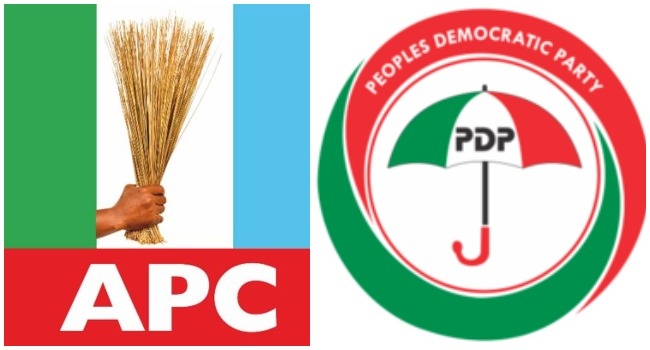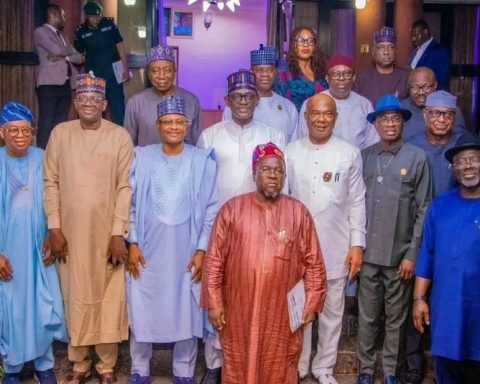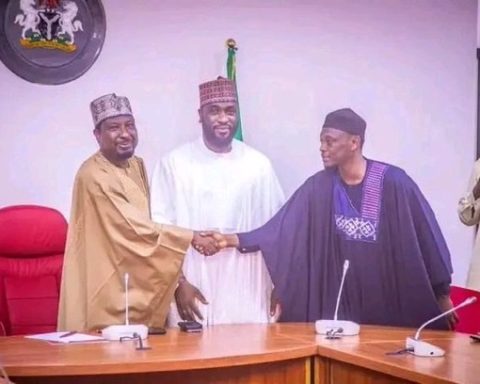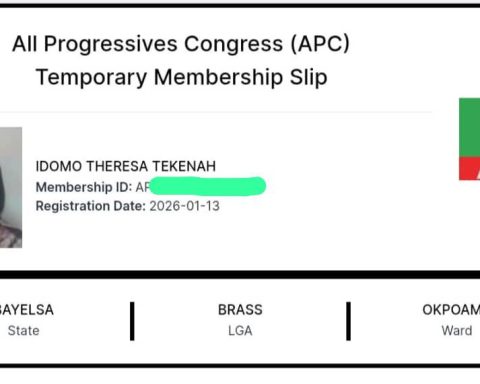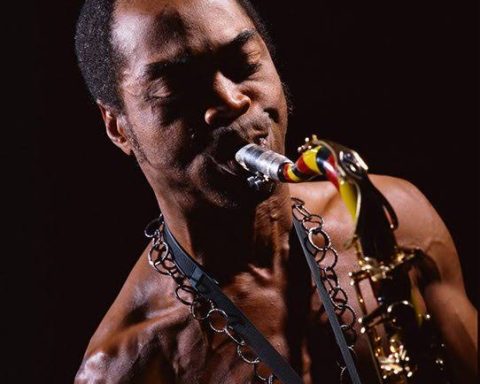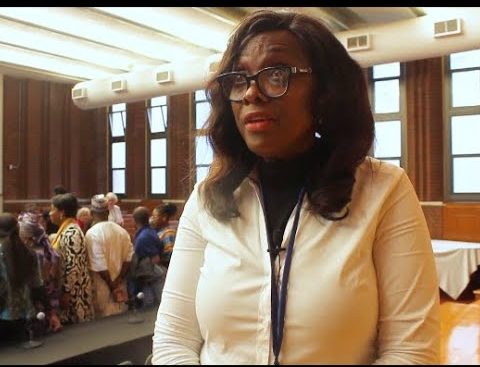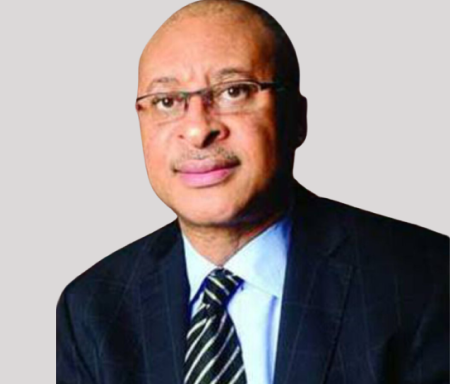In the recent past, at least eight governors, former and incumbents, have defected from the People’s Democratic Party (PDP) to the All Progressives Congress (APC). Some of them are Dave Umahi, former governor of Ebonyi State, and Ben Ayade, formerly of Cross River State, Bello among others.
These defections occurred mostly between 2020 and 2025, with some happening as recently as June 2025. For example, Sheriff Oborevwori of Delta State defected in April 2025, and Pastor Umo Eno of Akwa Ibom officially defected on 6 June 2025. Beyond governors, the APC has also gained significant numbers in the National Assembly, with reports indicating that about 30 federal lawmakers (six senators and 24 House members) have defected to the APC since early 2025. Currently, the APC controls 23 states through its governors, while the PDP controls 10 states, with a few others held by smaller parties.
Join our WhatsApp ChannelThe wave of defections appears to be driven by multiple factors, some of which may be personal and undisclosed, despite the public explanations offered by the defectors.
One major reason often cited is alignment with federal power for development. Akwa Ibom State Governor Umo Eno, for instance, stated that his decision came after “three months of wide consultation” and was motivated by the need to drive progress in his state. He implied that aligning with the ruling APC would enhance access to federal resources and opportunities.
Similarly, former Cross River State Governor, Ben Ayade, said his defection at the time was intended to bring the state in line with federal government policies and development programmes, underscoring his commitment to national unity and vision.
Another recurring motive is political survival and strategic positioning. Delta State Governor Sheriff Oborevwori reportedly described his move as a “strategic political realignment ahead of the 2027 general elections.” For former Ebonyi State Governor, David Umahi, dissatisfaction with the PDP’s internal structure prompted his switch. He stated, “If APC would treat me nicely when I don’t have any relationship with it, what will happen when I am in its fold? Even as large as APC is, one man does not control the party, but in PDP, one man controls the party.” His words highlight internal party conflicts as a key driver of defection.
Umahi also framed his move as an act of obedience to God’s will, a gesture of respect for then President Muhammadu Buhari, and a show of honour to prominent figures present at his defection ceremony. Supporting this narrative, the APC’s Special Adviser on Information claimed that defectors are joining the ruling party because they believe in the ongoing reforms and their benefits to both present and future generations.
READ ALSO: Why I Moved From PDP To APC – Gov Eno
Meanwhile, opposition parties, including the PDP and NNPP, have accused the APC-led federal government of using state institutions to pressure political opponents into defecting. PDP Deputy National Youth Leader Timothy Osadolor alleged that the government uses agencies like the EFCC and ICPC to intimidate politicians, many of whom defect to the APC to seek protection. This allegation points to another factor: pressure and coercion from the federal administration. In the end, each defector likely has personal motives for joining the APC.
Defection from the Constitutional Angle
The Nigerian Constitution, under Section 68(1)(g) (and Section 109(1)(g) for state assemblies), mandates that lawmakers who defect from the party that sponsored them must vacate their seats, unless there is a division in the party. This clause aims to uphold party ideology and the electoral mandate. However, as of mid-2025, no National Assembly member has lost their seat due to defection, despite this constitutional requirement.
Notably, Senators Adamu Aliero, Yahaya Abdullahi, and Garba Maidoki from Kebbi State defected to the APC in May 2025, boosting the party’s Senate majority to 68 seats. Others like Hon. Oluwole Oke have also switched from PDP to APC without losing their seats. Courts have often accepted internal party crises as justification for such defections, a flexible interpretation that raises concerns about lawmakers violating the very mandates they swore to uphold. But then, does it mean that PDP is the only party having internal disputes in Nigeria, or maybe, it is the major opposition party?
Importantly, these constitutional provisions apply only to lawmakers, not governors or executive officeholders. This legal gap allows governors to defect freely. Yet, some who now celebrate the APC once praised the PDP. For example, Akwa Ibom Governor Umo Eno, who once credited PDP for his rise, recently described the party as a “faulty aircraft,” revealing a sudden shift in loyalty.
Many of these governors cite access to federal resources as their reason for defecting, yet their states still struggle with poverty, insecurity, and underdevelopment since the defection, exposing a gap between rhetoric and reality. These moves appear more about political gain than public interest.
In contrast, governors like Alex Otti of Abia State have prioritised governance over party politics. His focus on infrastructure and economic reform demonstrates that meaningful progress does not require defection. Yet fears persist that opposition-led states may lose federal support, pressuring governors to join the ruling party. If that is the case, has Alex Otti lost federal grants?
Defection, Pursuit of a Second Term and Little Time for Governance
The pursuit of a second term often harms governance soon after a leader takes office. With the 2027 elections still two years away, politicians in Nigeria are already defecting and campaigning, leaving little time for effective governance. Focus shifts from long-term policies to short-term popularity, leading to compromised decisions and neglect of critical issues like economic stability.
Sadly, Nigerian politicians seem to have no time for leadership, only for campaigns and politics. Many governors have become “lame ducks,” allowing insecurity and hunger to worsen while focusing more on political defections.
Some governors have also forced commissioners to resign or defect alongside them, demonstrating a heavy-handed approach to political loyalty. For instance, Akwa Ibom Governor Umo Eno directed all his commissioners and political appointees to either join him in defecting from the PDP to the APC or resign. Among all the appointees, only the Commissioner for Information and Strategy, Courageous Ini Ememobong, resigned in protest, citing his principled opposition to the APC despite his respect for the governor. The fact that only one commissioner resigned raises questions about the pressure on others to conform and the limited space for dissent in such political shifts.
The defections have been interpreted by online reports as a political success for Tinubu, further clamping a death knell on the power of the electorate to decide elections. As Governor Umo Eno stated, he wants to support Tinubu’s vision. With high-profile ceremonies and top APC figures welcoming defectors, it appears Tinubu’s influence is growing.
Senator Ali Ndume recent statement that many politicians are defecting to the APC, that the people were not following.
While this suggests limited grassroots support for the APC, the mass defections still give the APC greater strength to influence elections.
The 2023 general election saw widespread allegations of rigging, with opposition parties accusing the APC and INEC of manipulating results and using state power to their advantage. Though INEC denied these claims, investigations and reports revealed vote inflation and intimidation tactics favouring the APC. Thus, defections bolster APC’s political machinery, potentially undermining the electorate’s true power to decide elections.
Also worthy of mention is that opposition politics under President Tinubu face severe challenges, with the government cracking down on dissenting voices like Professor Pat Utomi’s “shadow government” initiative. The Department of State Services (DSS) has sued Utomi, seeking to stop his rallies and declare his shadow government unconstitutional, accusing it of attempting to usurp executive authority and destabilise the country. By 27 June, the Federal High Court in Abuja will be sitting on the matter between the DSS and Pat Utomi. This heavy-handed response signals shrinking space for organised opposition, raising questions about the viability of alternative political movements.
The Masses Need to Be More Courageous
Despite setbacks in the 2023 elections, the electorate should not lose hope. History shows that people can reclaim power even under difficult political conditions. For example, South Africa’s anti-apartheid movement overcame decades of repression to dismantle an authoritarian regime and establish democracy. Similarly, mass protests and coalition-building in Eastern Europe toppled authoritarian governments in the late 20th century. These successes came from persistent civic engagement, unity among opposition forces, and strategic nonviolent resistance. Nigerians must remain vigilant and active, not just for themselves but for future generations, ensuring their votes and voices ultimately shape the nation’s destiny.
Dr Mbamalu, a Jefferson Journalism Fellow, member of the Nigerian Guild of Editors and Media Consultant is the publisher of Prime Business Africa
Dr. Marcel Mbamalu is a distinguished communication scholar, journalist, and entrepreneur with three decades of experience in the media industry. He holds a Ph.D. in Mass Communication from the University of Nigeria, Nsukka, and serves as the publisher of Prime Business Africa, a renowned multimedia news platform catering to Nigeria and Africa's socio-economic needs.
Dr. Mbamalu's journalism career spans over two decades, during which he honed his skills at The Guardian Newspaper, rising to the position of senior editor. Notably, between 2018 and 2023, he collaborated with the World Health Organization (WHO) in Northeast Nigeria, training senior journalists on conflict reporting and health journalism.
Dr. Mbamalu's expertise has earned him international recognition. He was the sole African representative at the 2023 Jefferson Fellowship program, participating in a study tour of the United States and Asia (Japan and Hong Kong) on inclusion, income gaps, and migration issues.
In 2020, he was part of a global media team that covered the United States presidential election.
Dr. Mbamalu has attended prestigious media trainings, including the Bloomberg Financial Journalism Training and the Reuters/AfDB Training on "Effective Coverage of Infrastructural Development in Africa."
As a columnist for The Punch Newspaper, with insightful articles published in other prominent Nigerian dailies, including ThisDay, Leadership, The Sun, and The Guardian, Dr. Mbamalu regularly provides in-depth analysis on socio-political and economic issues.


